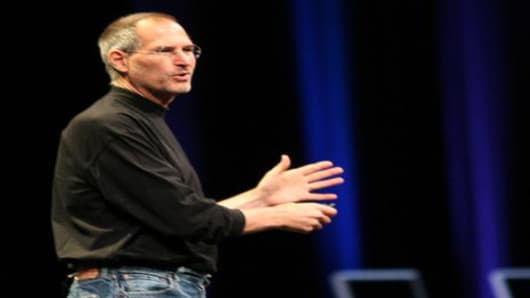People who are close to Mr. Jobs say that he had a surgical procedure this year to address a problem that was contributing to a loss of weight. These people declined to be identified because Mr. Jobs had not authorized them to speak about his health.
On stage to unveil the iPhone 3G last month, Mr. Jobs’s gaunt appearance led to speculation that his cancer had returned. An Apple spokesman has said that in the weeks before the event Mr. Jobs picked up a “common bug” and was taking a course of antibiotics. An Apple spokeswoman declined further comment on Tuesday.
Mr. Jobs ran a high fever for the week preceding his presentation, according to an industry executive he spoke with. He considered canceling his appearance because he was still feeling ill, but did not want to skip a long-scheduled event, that person said.
During an interview after the presentation, Mr. Jobs responded to a reporter’s question about how he was feeling by saying, “I feel fine.”
Mr. Jobs has told several associates, as well as some members of Apple’s board, that he is dealing with nutritional problems in the wake of his cancer surgery. Medical descriptions of the surgery state that in some cases it leads to weight loss and low energy.
Analysts were divided over how much of a role the talk about Mr. Jobs’s health played in Tuesday’s decline in Apple’s stock. After closing at $166.29 on Monday, the shares opened lower and then recovered during the day to close at $162.02, a 2.6 percent drop.
There was intense discussion of the significance of a statement made by Peter Oppenheimer, the chief financial officer, that Apple was planning a “product transition” that would lower its gross margins by three to four percentage points during the next year.
Still, analysts said Mr. Jobs’s health was on investors’ minds.
“Every client call today I’ve had has brought up the health issue,” said Charles Wolf, a securities analyst at Needham & Company. At the same time, however, Mr. Wolf said that the overriding issues were basic ones about the company’s business in the wake of one of its best quarters. “I think the drop was based on the margin; that’s when the stock really cratered.”
Apple is, of course, not only private about Mr. Jobs’s personal life, but about virtually every aspect of its business.
The public image of the company is carefully orchestrated around high-profile product introductions by Mr. Jobs. And the extraordinary degree to which Apple’s recovery and continued success is associated with Mr. Jobs has made it unique in the eyes of shareholders.
“These are material questions given that his footprint is all over the company,” said A. M. Sacconaghi Jr., a securities analyst at Sanford C. Bernstein. “The fact is, if you’re a C.E.O. of a public company you’re a public figure.”
The company has said that it has formulated a succession strategy in case Mr. Jobs left the company, but that it was confidential.
Mr. Jobs, who is keeping his own counsel on the succession issue, is on vacation this week and did not return phone calls.


